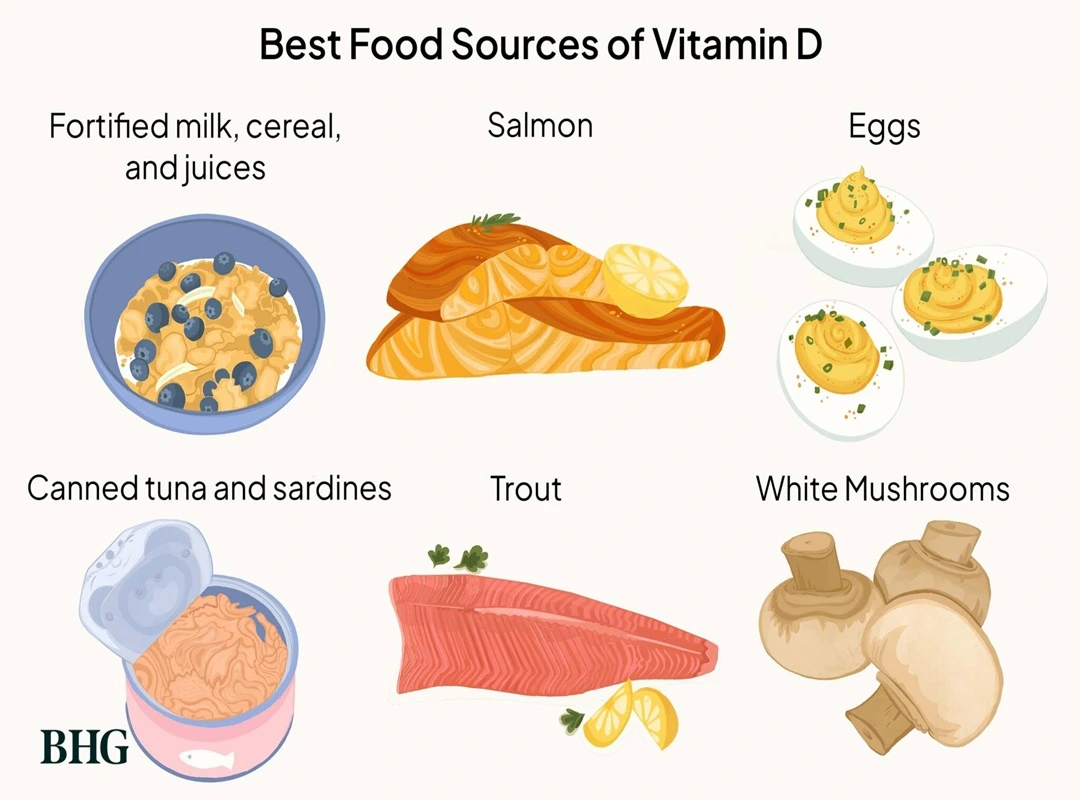Getting enough vitamin D is crucial for maintaining strong bones, a healthy immune system, and overall well-being. While it is naturally produced by the body when directly exposed to sunlight, many people do not spend enough time outdoors or absorb enough through their diet to meet their body’s needs. Here are some practical tips to help you ensure adequate vitamin D intake for optimal health:
Our primary source of vitamin D is sunlight. Spending just 10-15 minutes a day outdoors in the sun without sunscreen can be enough to maintain adequate levels. However, this can be challenging for those with indoor jobs, those who live in climates with limited sunshine, or those with darker skin tones, as melanin acts as a natural sunscreen, reducing the body’s ability to produce vitamin D. Consider taking regular walks outdoors or sitting near a window to increase your sun exposure.
During the winter months or if you live in a region with limited sunlight, consider investing in a light therapy box. These boxes emit a bright light that mimics natural sunlight and can help boost your vitamin D levels. Sit in front of the light therapy box for about 30 minutes each day while working, reading, or relaxing.
Include fatty fish such as salmon, tuna, mackerel, and sardines in your diet. They are excellent sources of vitamin D and provide other essential nutrients like omega-3 fatty acids. Aim for two to three servings of fatty fish per week to boost your intake.
Fortified foods are those that have been artificially enhanced with vitamins and minerals, including vitamin D. Examples include dairy products, orange juice, soy milk, cereals, and bread. Including these foods in your diet can help increase your vitamin D levels, especially if you are vegan or vegetarian.
Taking a daily vitamin D supplement is a convenient way to ensure you’re getting enough. Look for supplements that contain vitamin D3 (cholecalciferol), as this is the form most easily utilized by your body. Consult with your healthcare provider to determine the appropriate dosage and any potential interactions with medications you may be taking.
Vitamin D is essential for calcium absorption and bone health. Deficiency can lead to bone softening or thinning, increasing the risk of fractures. It also plays a crucial role in immune function, mood regulation, and reducing inflammation in the body.
Signs of vitamin D deficiency include frequent illnesses, fatigue, bone and back pain, depression, and impaired wound healing. If you experience any of these symptoms, consult your doctor, who may recommend a blood test to check your vitamin D levels.
In addition to sunlight and diet, several factors can influence vitamin D levels, including age, weight, and certain medical conditions. Older adults tend to have lower levels due to reduced skin thickness and decreased kidney function, which impacts vitamin D activation. Obesity can also lead to lower vitamin D levels, as it tends to get stored in body fat, making it less available for use by the body.
Maintaining optimal vitamin D levels is crucial for your overall health and well-being. By incorporating these simple tips into your daily routine, you can ensure your body gets the vitamin D it needs to function properly. Be sure to consult with your healthcare provider if you have any concerns or questions about your specific needs.


